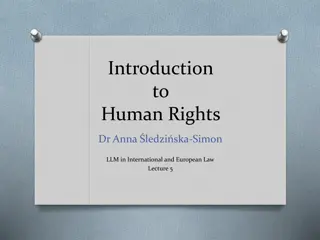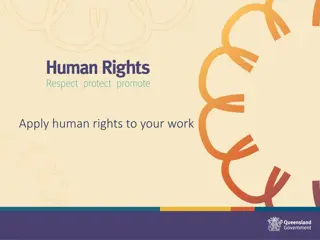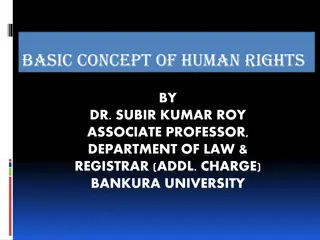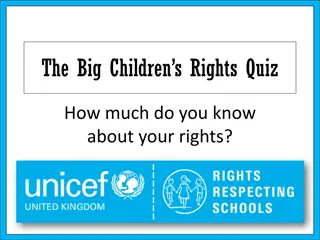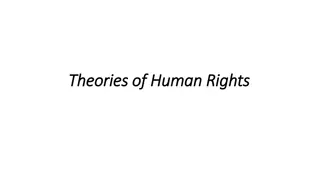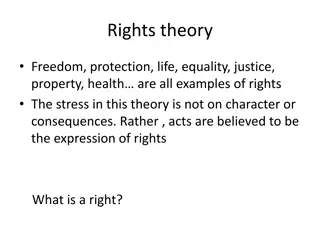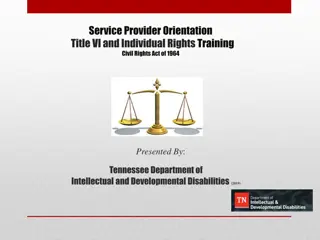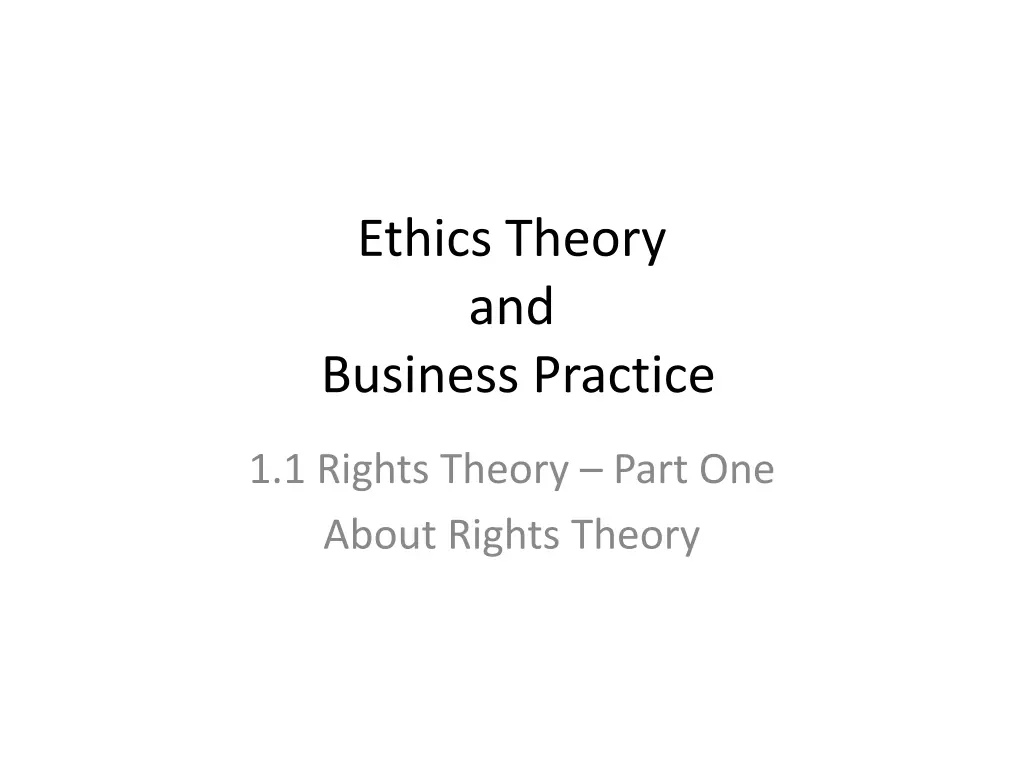
Modern Rights Theory in Business Ethics
Explore the development of modern rights theory, focusing on political, social, and cultural rights, and how they intersect with business ethics. Learn about the implications for corporations and individuals in upholding these rights.
Download Presentation

Please find below an Image/Link to download the presentation.
The content on the website is provided AS IS for your information and personal use only. It may not be sold, licensed, or shared on other websites without obtaining consent from the author. If you encounter any issues during the download, it is possible that the publisher has removed the file from their server.
You are allowed to download the files provided on this website for personal or commercial use, subject to the condition that they are used lawfully. All files are the property of their respective owners.
The content on the website is provided AS IS for your information and personal use only. It may not be sold, licensed, or shared on other websites without obtaining consent from the author.
E N D
Presentation Transcript
Ethics Theory and Business Practice 1.1 Rights Theory Part One About Rights Theory
aims to outline a range of political, social and cultural rights, and discuss some ways in which they relate to business ethics to discuss some features of the way that we tend to think about rights
rights a noun, as opposed to an adjective or a verb an ethical entitlement to something commonly referred to in corporate PR and by critics of corporations
the development of modern rights theory Three generations 1. political rights 2. social rights 3. cultural rights
first generation: political rights relate to people s ability to have a say in how the communities within which they live and work are run also concern broader aspects of people s treatment by those in positions of power words such as participation, justice, fairness, equality, and freedom are common
the focus of concern early focus: concerned with political rights in relation to state power contemporary focus: also concerned with political rights in relation to the power of corporations
two ways in which corporations might be guilty of suppressing political rights 1. by influencing government decision making www.youtube.com/watch?v=_WPd-ASU0yM 2. by denying people a say in how the companies they work for are run
second generation: social rights concerned with basic human needs significance of the industrial revolution contemporary relevance for business due to: loosening of employment legislation prevalence of offshoring
trade unions the expression of political rights the protection of social rights Article 23.4 of the Universal Declaration of Human Rights states that Everyone has the right to form and to join trade unions for the protection of his (sic) interests (United Nations, 2013)
political rights, cultural rights, and union membership theory in practice union busting at bottling plants used by Coca-Cola
third generation: cultural rights include: the right of groups of people to be recognized by other groups of people the right to preserve traditional ways of life the right to maintain certain patterns of behaviour and belief the right to enjoy particular styles of social and artistic expression
are often challenged when vulnerable/ disadvantaged minorities are marginalized or suppressed by dominant majorities these minorities are often defined by race, ethnicity, religion, gender, sexual orientation or disability
cultural rights and business accommodating the needs and expectations of minority groups of employees, customers, etc. beware of business activity threatening the traditional ways of life of less-powerful communities www.youtube.com/watch?v=hxsnfUMPqj8
Universal Declaration of Human Rights lays down minimum standards for the treatment of people lists over 30 rights that are accorded to all members of the human family a globally accredited blueprint for corporations to use in their interactions with people also offers a basis for critique of corporate conduct www.youtube.com/watch?v=RNwL2mjApRw&featu re=fvwre
some characteristics of rights rights trump other considerations rights entail responsibilities negative responsibilities and positive responsibilities conflicting rights
key points the importance given to rights by corporations and their critics rights fall into various categories so businesses may be culpable of various types of abuse of rights the Universal Declaration of Human Rights offers a basis for ethical action and ethical critique



